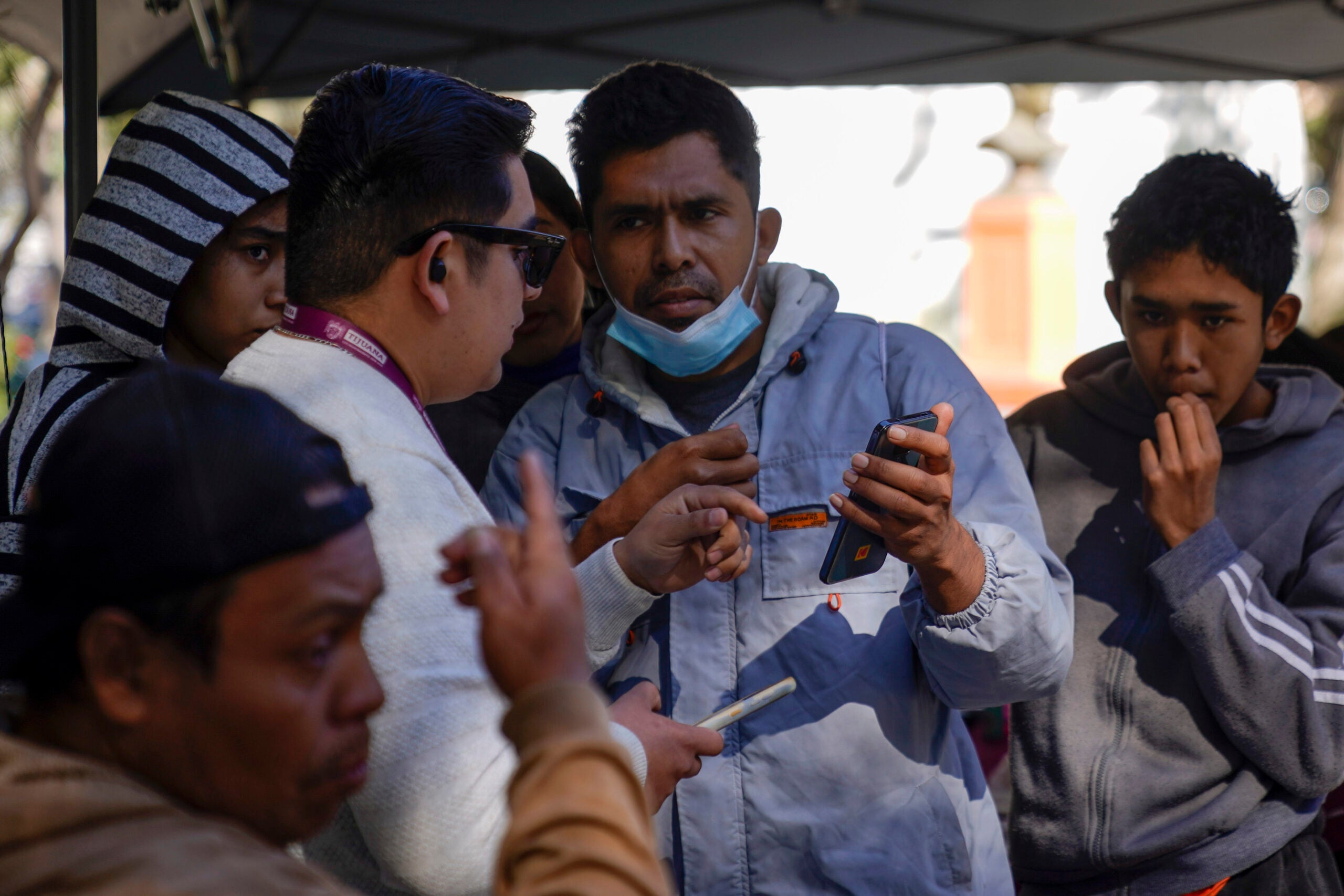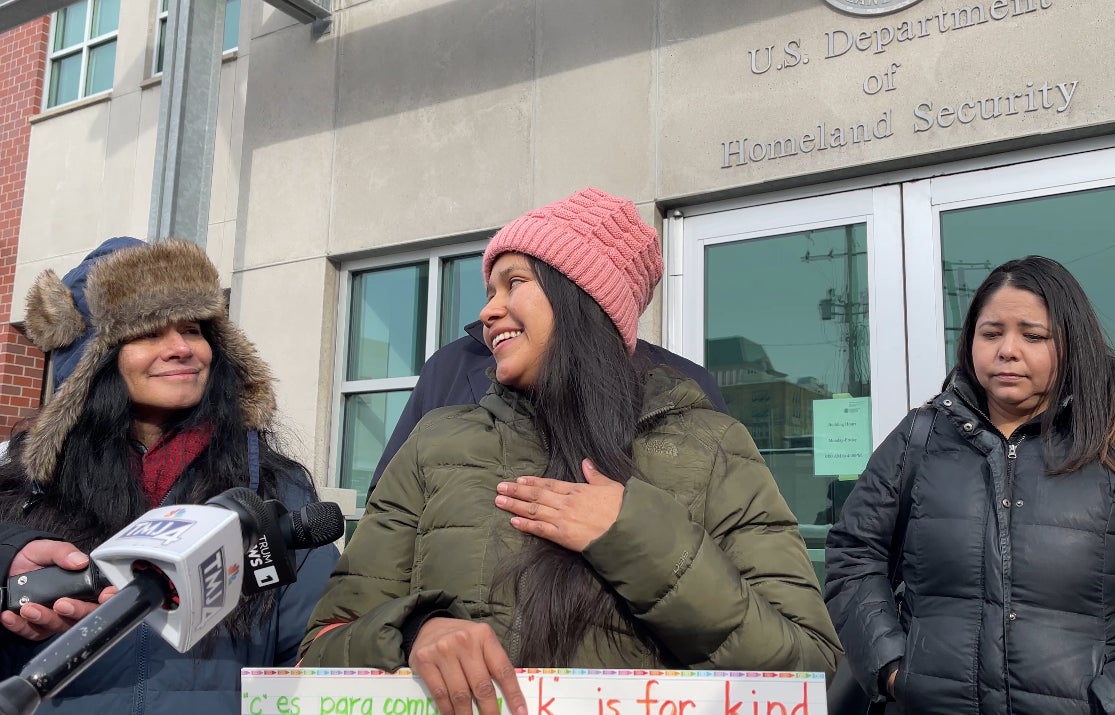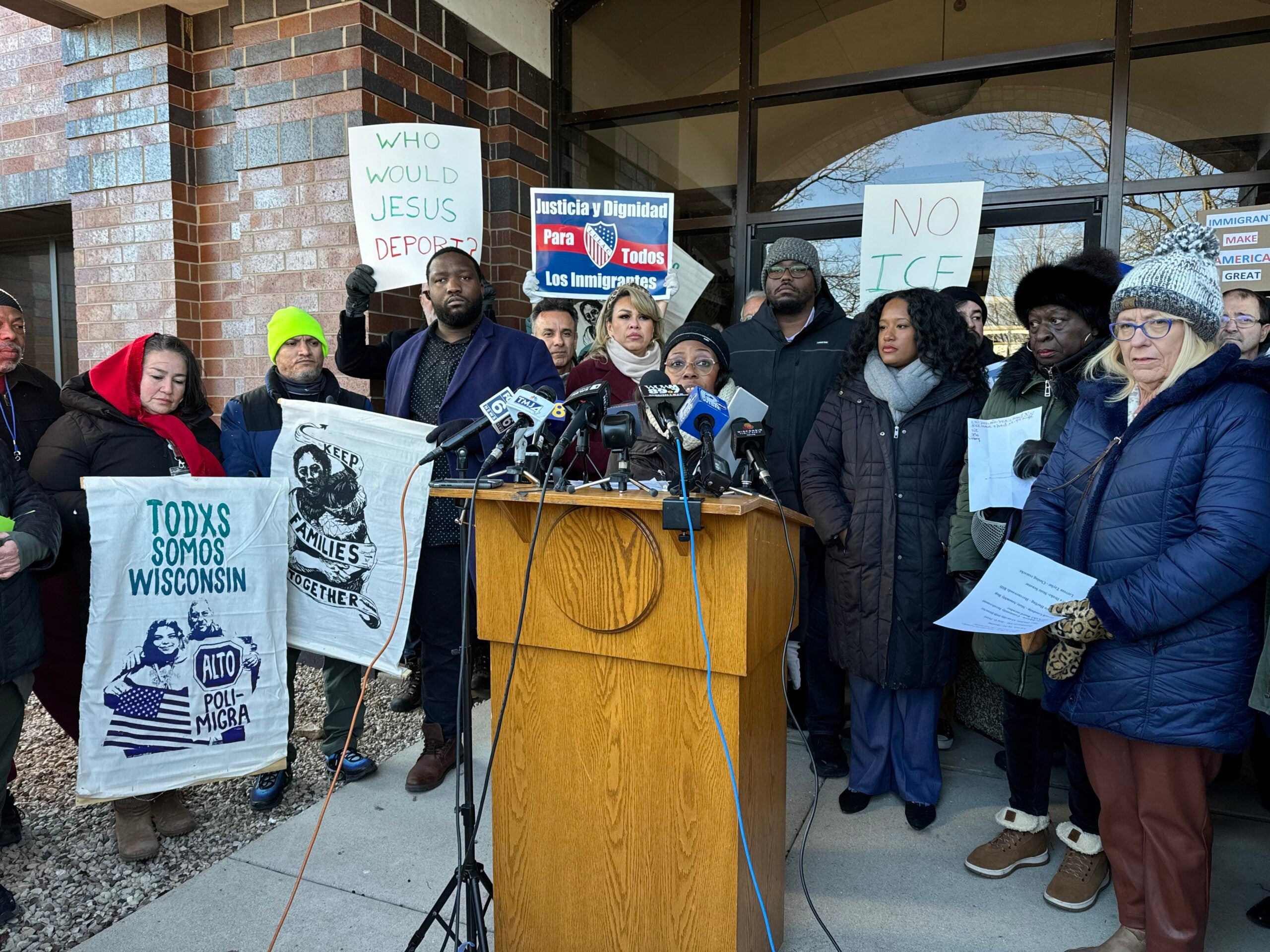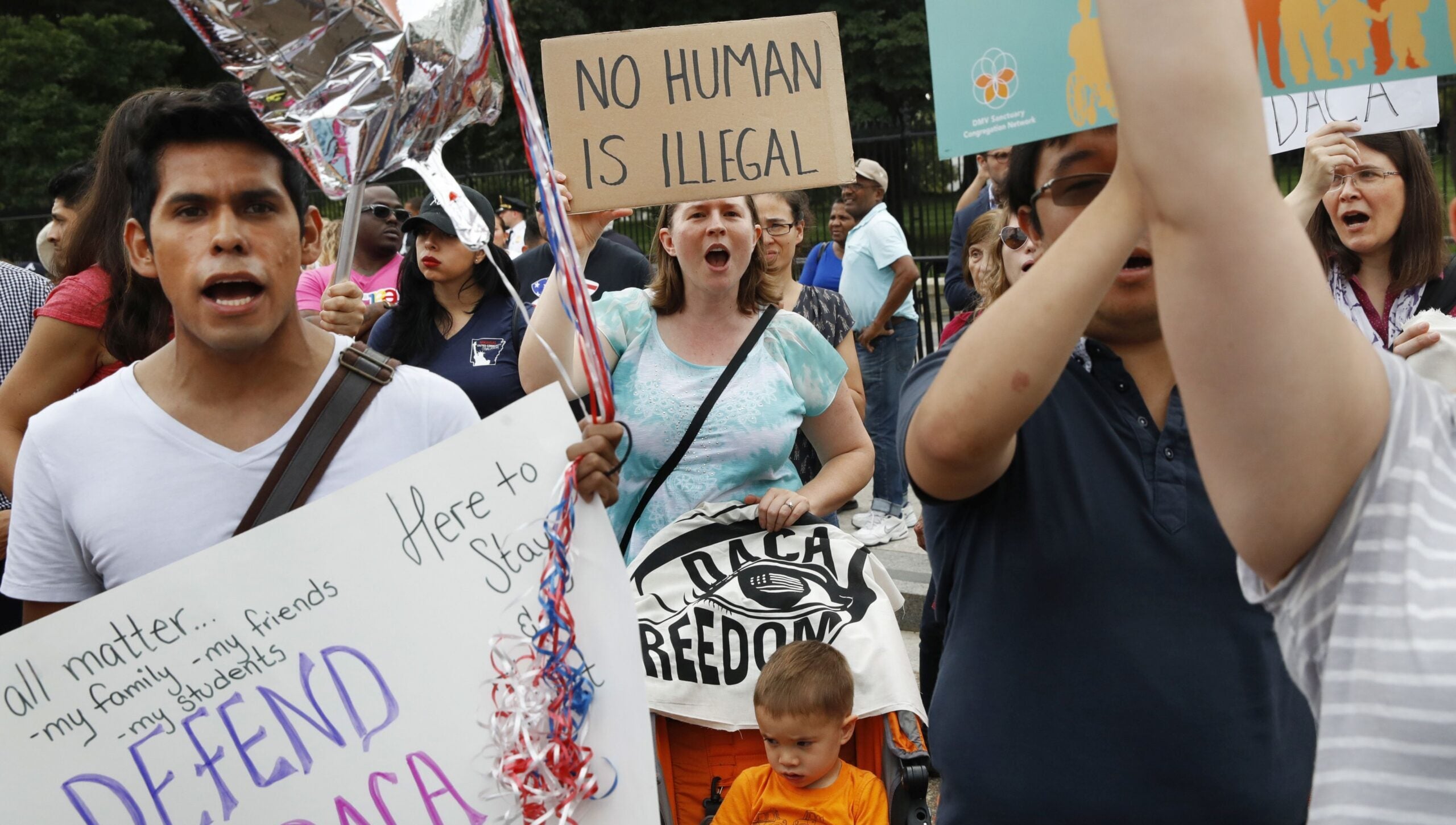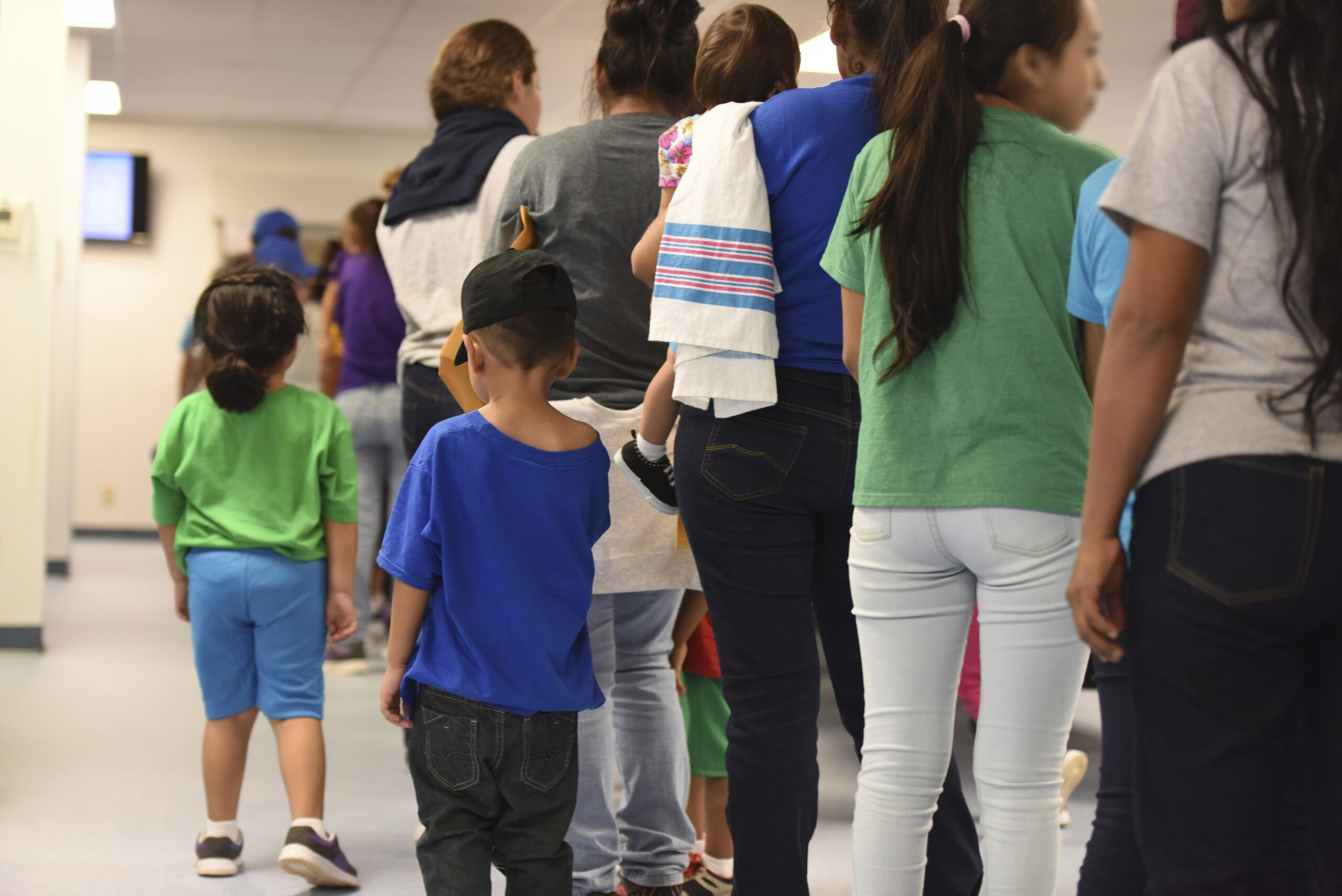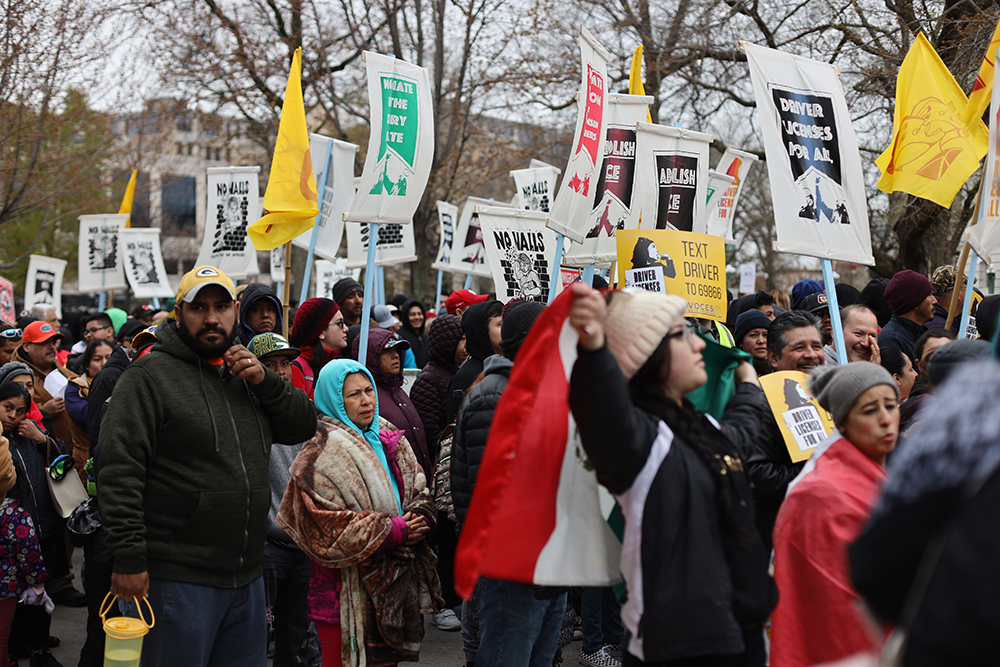One Wisconsin group that provides services to immigrants says it’s seen an increase in asylum cases since the end of Title 42 earlier this month. Another organization says it was already seeing elevated cases and hasn’t seen a noticeable uptick since the pandemic-era policy expired.
Title 42 allowed U.S. officials to turn away asylum seekers who came to the U.S.-Mexico border to prevent spreading COVID-19. The policy ended May 11 when the federal government lifted the national COVID-19 emergency designation. However, the Biden Administration added new policies to crack down on illegal border crossings, including barring migrants caught crossing from returning to the U.S. for five years and imposing criminal charges if they do.
Voces de la Frontera, a Milwaukee-based immigrant rights nonprofit, has seen the number of asylum cases it receives each week nearly double since the end of Title 42, according to Primitivo Torres, deputy director of civic engagement.
Stay informed on the latest news
Sign up for WPR’s email newsletter.
He said Voces de la Frontera’s asylum cases have increased from three to four per week to five to 10, with many asylum seekers coming from Venezuela, Cuba and Nicaragua.
“Wisconsin used to be what is called a ‘secondary destination.’ People would go to Chicago, (Los Angeles) and New York, and they had a friend or family that lived here in Wisconsin, so they would come here,” Torres said. “Now, Wisconsin is a primary destination, so we’re getting folks directly from the border here to Wisconsin.“
Meanwhile, Catholic Charities of the Archdiocese of Milwaukee, a social service agency, was seeing increased asylum seekers prior to Title 42 ending and has not seen a big uptick in recent weeks, according to Barbara Graham, an attorney and the organization’s director of Refugee and Immigration Services.
“It’s been a huge group of people for a long time,” she said. “We routinely get four or five phone calls a day for people wanting to apply for asylum.”
Over the last couple of years, she said the organization has seen an influx in people seeking asylum settling in Fond du Lac and Racine — not as much in Milwaukee.
Why are people coming to Wisconsin?
Torres said policies by states like Texas and Florida have also made the Midwest a more attractive destination for asylum seekers.
Since last April, Texas Gov. Greg Abbott has directed his state’s Division of Emergency Management to bus migrants to cities like Washington D.C., New York, Chicago and Philadelphia. Last year, Florida Gov. Ron DeSantis sent planes of migrants from San Antonio, Texas, to Martha’s Vineyard, Massachusetts. He signed a bill in February that would expand similar efforts.
Torres said those actions have made asylum seekers view states like Wisconsin as safe places where they can find employment as they work through the asylum process.
“When these governors are playing politics (and) using them as political pawns, they’re realizing that’s not a place that they feel welcome,” he said. “They feel like they can come to Wisconsin, they can come to the Midwest and have a better opportunity fulfilling their life’s dreams for themselves and their families.”
Torres said many individuals seeking asylum are fleeing violence, poverty or political instability in their home countries.
“They feel like if they stay, they’re not going to survive,” he said. “They just want a better chance of life for their children, and for them not to fear death on a daily (or) weekly basis.”
To help asylum seekers find a better life in Wisconsin, Voces helped organize the “Rapid Response Welcome Coalition,” a group of 27 nonprofits, faith organizations and government entities in the greater Milwaukee area. The coalition helps provide food, shelter, clothing, medicine, legal support, translation services, hygiene kits, transportation, court accompaniment and advocacy.
One of the organizations in the coalition is the Greater Milwaukee Synod, a grouping of 119 Lutheran congregations and ministries from Sheboygan down to the Illinois border. Bishop Paul Erickson said the congregations provide an array of services that vary from community to community.
“It’s really kind of a patchwork quilt of individual groups and congregations that are responding, either as a congregation or members of those congregations,” he said.
Asylum process is often difficult and confusing
Both U.S. and international law allow people to come to America seeking asylum, as long as they have a “reasonable fear of persecution” based on race, religion, nationality, political opinion or particular social group, Graham said.
The U.S. cannot return an asylum seeker to their home country if that country either cannot or will not protect the individual, she said. That allows individuals to stay in the U.S. as they work through their asylum case, with no guarantee they will be granted asylum in the end.
“You don’t have a right to asylum, it’s all discretionary,” Graham said, noting fleeing “bone-crushing poverty” alone isn’t enough to be granted asylum.
There are two ways individuals can apply for asylum — either within one year of entering the U.S. or during deportation proceedings, she said.
The process also restricts an asylum seeker’s ability to work, as they cannot seek a work permit until 150 days after applying for asylum and that permit can’t be approved until 180 days, Graham said. Many asylum seekers also face language barriers as they try to navigate a confusing process.
“Immigration law has often been said to be the only thing that makes the tax code look user-friendly — and asylum is absolutely one aspect that fits into that mold,” she said.
The complexity of U.S. immigration law is one reason officials from Voces de la Frontera, Catholic Charities and Greater Milwaukee Synod said they think reform is necessary to create a clearer and more orderly immigration system.
“People say, ‘Well, you just need to get in line and do it the right way like my parents or grandparents did.’ That is a nonsensical statement,” Erickson said. “Because the way in which immigration was handled when my grandparents came over or our great-grandparents came over is radically different than it is today.”
“It’s resulted right now in a backlog to come in through the right way, so to speak, that is decades long in some cases,” he continued. “There are no good pathways right now, so people are coming in and making their own pathways.”
Wisconsin Public Radio, © Copyright 2025, Board of Regents of the University of Wisconsin System and Wisconsin Educational Communications Board.
